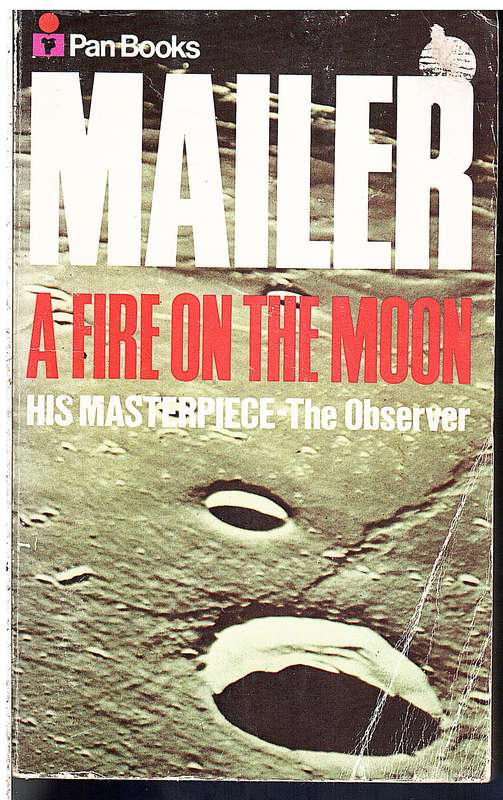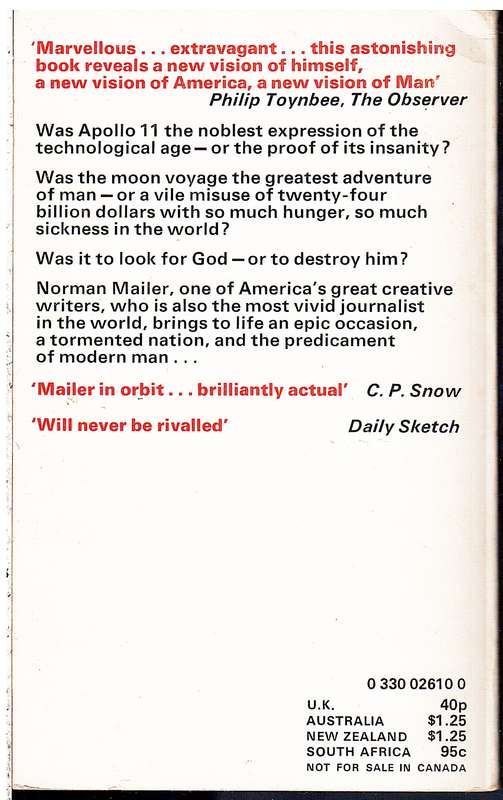I did not read "Of a Fire on the Moon" until years after the conclusion of the Apollo Moon landings between 1969 and 1972. Even so, Norman Mailer had inspired me since I first read "The Naked and the Dead" while in high school. At first, "Of a Fire on the Moon" did not attract me, however; it was so existentialist, so counterculture, so Jack Kerouac-esque. It wasn't until the 1990s when I began to explore the cultural history of Project Apollo as an icon of America memory that I returned to "Of a Fire on the Moon" and came to appreciate it's insights.
As one of the foremost contemporary American writers, Mailer was commissioned to write about the first lunar landing in the 1960s. What appeared in 1970 was this rather confusing account that is written as almost stream of consciousness ruminations on spaceflight. It provides useful insights, most importantly as Mailer with his 1960s countercultural mindset meets its antithesis, a NASA steeped in middle class values and reverence for the American flag and culture.
Mailer was forced in "Of a Fire on the Moon," grudgingly to admit that NASA's approach to task accomplishment--which he sees as the embodiment of the Protestant Work Ethic--and its technological and scientific capability got results with Apollo. He rails at NASA's closed and austere society, one where he says outsiders are distrusted and held at arm's length with a bland and faceless courtesy that betrays nothing.
For all of its skepticism, for all of its esotericism, the book captures powerful insights into rocket technology and the people who produced it in Project Apollo, but it is also heavy going to extract them from this dense book. - Amazon user review
ISBN: 0330026100
Pages: 429
Paperback
Pan Books, 1971
Fair/good condition; Pages tanned and stained but very readable copy
B41





